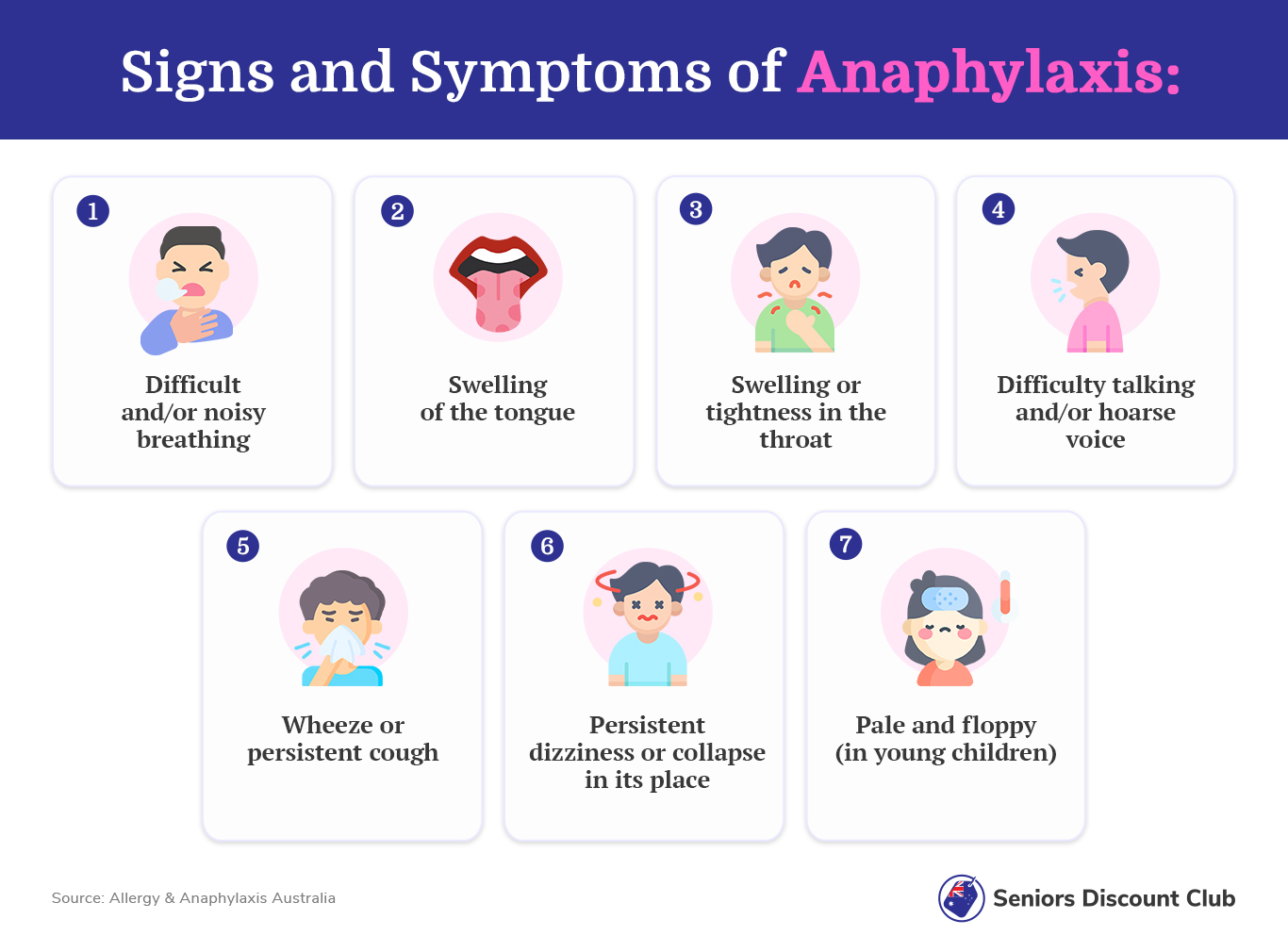Aussie frustrated over common constant back-and-forths at restaurants–Find out why!
By
VanessaC
- Replies 10
For many of us, going out for dinner is a chance to relax, maybe catch up with family or friends.
But there are some who prepare to face anxiety-inducing conversations each time they enter a restaurant, such as those living with allergies.
An Australian woman was faced with the reality of living with coeliac disease. Diagnosed with the disease in 2021, she had been feeling nauseous, vomiting after every meal, and suffering from migraines and fatigue for months. After endless tests, she received the diagnosis and the anxiety that came with it.
Dining at restaurants causes anxiety in some people living with allergies.
Her unease grew as she sat down for her first meal while travelling in Dundee, Scotland.
‘Would there be something I could have on the menu? Would there be cross-contamination that would end up with me feeling like I had food poisoning?’ She asked.
But, as soon as she sat down, the waitress rushed over and asked if there were any allergies at the table. To her surprise, the waitress was aware of coeliac disease and asked about cross-contamination.
She was offered a dish that suited her needs, and this became the theme of her trip–the staff of each restaurant she visited asked her about her allergies and even went as far as pointing her in the direction of a fish and chip shop that had gluten-free food.
It was then she realised that the UK had introduced Natasha’s Law in October 2021, which required establishments to provide a full list of ingredients for all food produced and packed for sale in the same premises. This law was in response to the death of Natasha Ednan-Laperouse in 2016, a teenager who died from an allergic reaction to a prepackaged baguette that didn’t have an allergen warning.
This realisation made the Aussie traveller angry and frustrated and led her to question why every meal felt like an anxiety-inducing experience in Sydney and every meal in the UK was an enjoyable one.
Alexx Stuart, the founder of Low Tox Life, said some Australian businesses are better at handling dietary restrictions than others.
She said, ‘Hospitality groups such as Merivale, based in Sydney, follow strict protocols in terms of staff training and kitchens taking allergies very seriously.’
She added: ‘It’s not like that everywhere, however, and partly because there lacks a national standard on how food and drink service is marked on menus, and how food safety is trained, i.e., very little on allergens is policed and it’s still mostly up to the person who has the allergy to ask questions and seek assurances from operators.’
Ms Stuart said customers should take the initiative to talk to wait staff, and if they don’t have the answer, to ask to speak to the chef personally.
Allergies are becoming more and more prevalent. Allergy & Anaphylaxis Australia reported that one in 10 babies have allergies, while one in 20 teenagers and one in 50 adults have food allergies.
It’s critical to stay vigilant when it comes to allergies, here are some signs and symptoms of Anaphylaxis (severe allergic reaction) you have to watch out for:

You may also watch the video below for a more in-depth discussion of the signs and symptoms of an allergic reaction:
 For more information and advice on allergies, you may call Allergy & Anaphylaxis Australia’s hotline at 1300 728 000 or in cases of emergency, immediately call 000.
For more information and advice on allergies, you may call Allergy & Anaphylaxis Australia’s hotline at 1300 728 000 or in cases of emergency, immediately call 000.
If you have any stories to share about allergies, and how they are treated by restaurants in Australia, please let us know in the comments below.
But there are some who prepare to face anxiety-inducing conversations each time they enter a restaurant, such as those living with allergies.
An Australian woman was faced with the reality of living with coeliac disease. Diagnosed with the disease in 2021, she had been feeling nauseous, vomiting after every meal, and suffering from migraines and fatigue for months. After endless tests, she received the diagnosis and the anxiety that came with it.
Dining at restaurants causes anxiety in some people living with allergies.
Her unease grew as she sat down for her first meal while travelling in Dundee, Scotland.
‘Would there be something I could have on the menu? Would there be cross-contamination that would end up with me feeling like I had food poisoning?’ She asked.
But, as soon as she sat down, the waitress rushed over and asked if there were any allergies at the table. To her surprise, the waitress was aware of coeliac disease and asked about cross-contamination.
She was offered a dish that suited her needs, and this became the theme of her trip–the staff of each restaurant she visited asked her about her allergies and even went as far as pointing her in the direction of a fish and chip shop that had gluten-free food.
It was then she realised that the UK had introduced Natasha’s Law in October 2021, which required establishments to provide a full list of ingredients for all food produced and packed for sale in the same premises. This law was in response to the death of Natasha Ednan-Laperouse in 2016, a teenager who died from an allergic reaction to a prepackaged baguette that didn’t have an allergen warning.
This realisation made the Aussie traveller angry and frustrated and led her to question why every meal felt like an anxiety-inducing experience in Sydney and every meal in the UK was an enjoyable one.
Alexx Stuart, the founder of Low Tox Life, said some Australian businesses are better at handling dietary restrictions than others.
She said, ‘Hospitality groups such as Merivale, based in Sydney, follow strict protocols in terms of staff training and kitchens taking allergies very seriously.’
She added: ‘It’s not like that everywhere, however, and partly because there lacks a national standard on how food and drink service is marked on menus, and how food safety is trained, i.e., very little on allergens is policed and it’s still mostly up to the person who has the allergy to ask questions and seek assurances from operators.’
Ms Stuart said customers should take the initiative to talk to wait staff, and if they don’t have the answer, to ask to speak to the chef personally.
Allergies are becoming more and more prevalent. Allergy & Anaphylaxis Australia reported that one in 10 babies have allergies, while one in 20 teenagers and one in 50 adults have food allergies.
It’s critical to stay vigilant when it comes to allergies, here are some signs and symptoms of Anaphylaxis (severe allergic reaction) you have to watch out for:
You may also watch the video below for a more in-depth discussion of the signs and symptoms of an allergic reaction:
Key Takeaways
- An Australian woman diagnosed with coeliac disease has shared her frustration at eating out in Australia compared to her experience in Scotland.
- The woman had more positive dining experiences in Scotland, where staff had a better understanding of coeliac disease, asked about possible allergies and were able to offer suitable meal options.
- New laws introduced in the UK in 2021, known as Natasha's Law, require food produced and packed on the same premises to provide a full list of ingredients, contributing to a more inclusive and safe dining experience for those with allergies.
- Australia's lack of similar standards and legislation leads to frustration and anxiety-inducing experiences for people with food intolerances or allergies when eating out.
If you have any stories to share about allergies, and how they are treated by restaurants in Australia, please let us know in the comments below.








